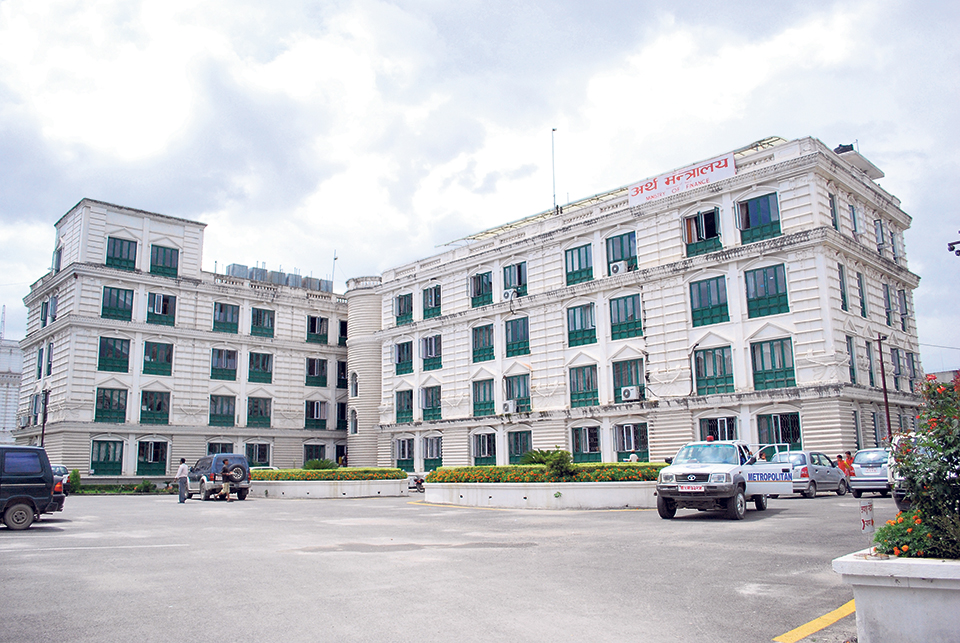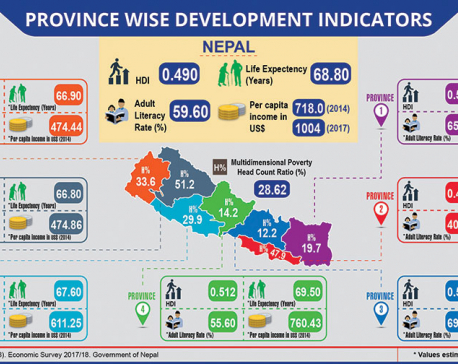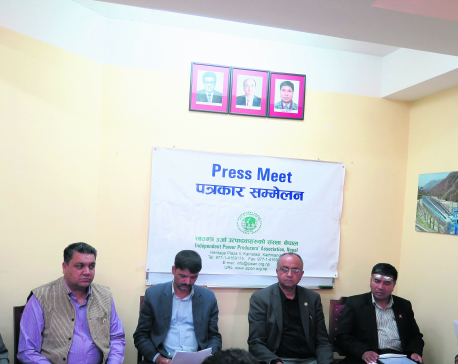
OR
‘Govt should focus on remedies to current economic problems, not just on revenue collection’
Published On: March 29, 2022 07:35 PM NPT By: Republica | @RepublicaNepal

KATHMANDU, March 29: Economists and experts have accused the Ministry of Finance (MoF), the pivotal government agency to look after the economic health of the country, of focusing on populist programs and acting as a revenue collection organ rather than solving the real problems of the economy.
Speaking at a program entitled ‘Current Economic Status and Forthcoming Budget FY 2022/23 on Tuesday,’ they urged the government to focus on promoting inclusive economic growth, controlling the soaring inflation, developing mechanism to address the ongoing liquidity problem in the country’s banking system and checking the ongoing capital flight through digital platforms. “The MoF should act in line with looking for sustainable economic growth of the country rather than just looking for collecting more revenue and enforcing populist programs to buy votes,” said Posh Raj Pandey, executive chairman of South Asia Watch on Trade, Economics and Environment.
For the next fiscal year, the National Planning Commission has given a budget ceiling of Rs 1.745 trillion to the government. Of the amount, Rs 1.359 trillion will be covered from revenue mobilization while the remaining around Rs 500 billion is to be covered through foreign assistance.
Pandey said the government’s ambitious target of revenue collection will help inflate the trade deficit even more. “On an average, the government collects 47 percent of the targeted revenue via indirect taxes imposed on the imported goods and the burden of taxes is passed mainly to the low-income groups,” said Pandey, speaking at the program organized jointly by the MoF, Nepal Economic Association (NEA) and the Confederation of Commercial Banks and Financial Institutions Nepal.
Nepal has been reeling under low economic growth for the past three years, mainly due to the impacts of the COVID-19 pandemic. According to the reports of the Asian Development Bank, Nepal’s annual average economic growth rate stood at mere 1.4 percent during the period.
Bishwombhar Pyakurel, chairman of the NEA, said the government should consider cautious measures while formulating a budget for the next fiscal year. “The inflation rate will surely hit a double digit point by the end of the current fiscal year due to the soaring petroleum price and the ongoing rift between Russia and Ukraine,” he said.
Pyakurel urged the government to enforce a mechanism to track the informal channeling of remittance, growing investment in crypto currency and the perennial slow capital expense pattern through the budget next year. “As the country’s debt to GDP ratio has already reached 42 percent, prudent measures should be implemented to reduce dependency on foreign loans,” he said.
To give a respite to the country’s worsening economic situation, the economists suggested the government control systemic corruption, revise modality of providing subsidies in agriculture, check illegal imports through proper border management and develop food storage systems at each municipal level. “Farmers should be given subsidies not on the basis of the inputs they use, but on the basis of their productivity to improve the supply chain of food items,” said economist Keshab Acharya.
You May Like This

Govt still not serious on the country’s ongoing serious economic problems: Analysts
KATHMANDU, April 5: Economists and the private sector on Wednesday blame the political leaders for being apathetic about the serious economic... Read More...

Govt bringing major reform programs to breathe new life into economy
KATHMANDU, May 29: Finance Minister Yubaraj Khatiwada is expected to try breathing new life into the economy, with his budget for... Read More...

Govt brings back environment fee lifted by K P Oli govt
KATHMANDU, April 4: A one percent fee that was being charged separately for environment services for hydropower project companies lifted by... Read More...






Just In
- Challenges Confronting the New Coalition
- NRB introduces cautiously flexible measures to address ongoing slowdown in various economic sectors
- Forced Covid-19 cremations: is it too late for redemption?
- NRB to provide collateral-free loans to foreign employment seekers
- NEB to publish Grade 12 results next week
- Body handover begins; Relatives remain dissatisfied with insurance, compensation amount
- NC defers its plan to join Koshi govt
- NRB to review microfinance loan interest rate











Leave A Comment